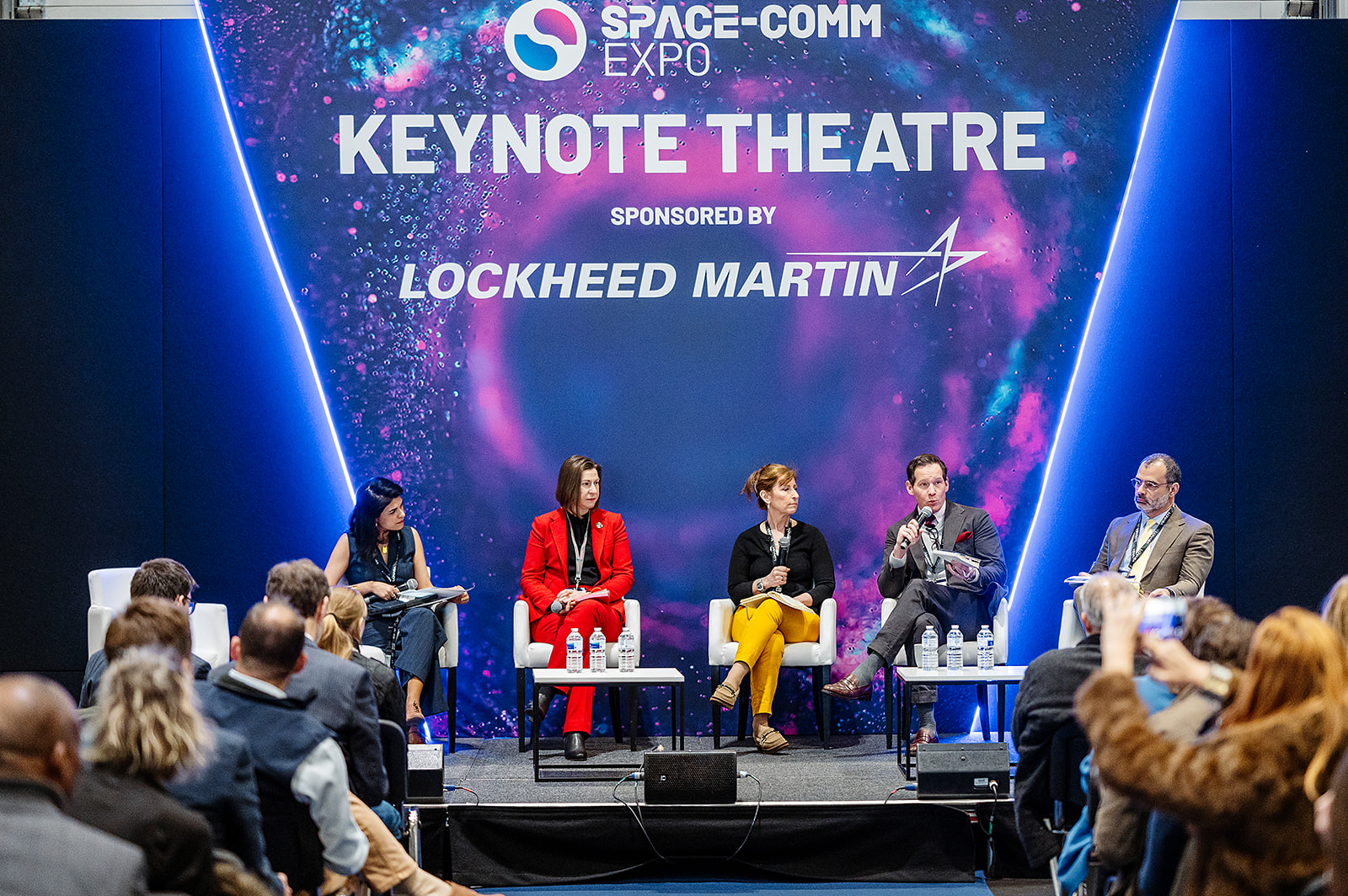UK Government commissions space solar power station research

Above:
Artist's impression of how a space-based solar power station might work.
© Frazer-Nash Consultancy
The study, for the Department of Business, Energy and Industrial Strategy (BEIS), will investigate the potential of the power generation concept, which uses large Solar Power Satellites to collect solar energy, convert it into high frequency radio waves and safely beam it back to ground-based receivers connected to the electrical power grid.
It is an idea first conjured by science-fiction writer Isaac Asimov in 1941 and is now being studied by several nations because the lightweight solar panels and wireless power transmission technology is advancing rapidly. This, together with lower cost commercial space launch, may make the concept of solar power satellites more feasible and economically viable.
Now the UK in 2020 will explore whether this renewable technology could offer a resilient, safe and sustainable energy source.
The study, led by Frazer-Nash Consultancy, will consider the engineering and economics of such a system – whether it could deliver affordable energy for consumers, and the engineering and technology that would be required to build it. One of the biggest issues to overcome is assembling the massive satellites in orbit, which has not been done before at this scale.
Dr Graham Turnock, Chief Executive of the UK Space Agency, said: "The Sun never sets in space, so a space solar power system could supply renewable energy to anywhere on the planet, day or night, rain or shine. It is an idea that has existed for decades but has always felt decades away.
"The UK is growing its status as a global player in space and we have bold plans to launch small satellites in the coming years. Space solar could be another string to our bow, and this study will help establish whether it is right for the UK."
Historically, the cost of rocket launches and the weight that would be required for a project of this scale made the idea of space-based solar power unfeasible. But the emergence of privately-led space ventures has brought the cost of launch down dramatically in the last decade.
Martin Soltau, Space Business Manager at Frazer-Nash said: “Decarbonising our economy is vital. We need to explore new technologies to provide clean, affordable, secure and dependable energy for the nation. Using the power of the sun, space-based solar power is a low-carbon, renewable technology that could potentially offer us a resilient, safe and sustainable energy source, and could make a substantial contribution to delivering on the UK’s commitment to Net Zero by 2050.
“The idea was first suggested by science-fiction writer, Isaac Asimov, back in 1941 – eighty years later, advances in wireless power transmission technology and lightweight solar panels are making the concept potentially feasible, and the lower cost of commercial space launch may make it economically viable.”
Martin outlined what the Frazer-Nash Consultancy and Oxford Economics study will involve: “We’ll be considering the engineering feasibility and economics of space-based solar power, exploring whether it could deliver affordable energy to consumers and the engineering and technology that would be required to build it. There would be a number of issues to be overcome: for example, assembling the massive satellites in orbit hasn’t been done before at this scale.
“We are studying the leading international Solar Power Satellite designs, and forming an expert panel, comprised of leading SBSP experts and space and energy organisations, to gain a range of industry views. We have partnered with Oxford Economics, which has significant experience in the space sector and which will provide additional insight into the economic assessment of the system, and the benefits to the UK economy.
“The study will provide an independent assessment as to whether it is feasible, from an engineering perspective, to develop SBSP to an operational capability by 2050 – including considering through-life costs and comparing SBSP alongside other forms of renewable energy, to see how it would contribute as part of a future mix of clean energy technologies.
“SBSP has the potential to contribute substantially to UK energy generation, and offers many benefits if it can be made practical and affordable. With expertise in the space, energy and aerospace sectors, and a strong understanding of existing SBSP technologies, their relative merits and maturity, Frazer-Nash is well placed to assess the potential of this concept.”
The report has been commissioned jointly by the UK Space Agency (UKSA) and Department for Business, Energy and Industrial Strategy. The outputs of the study will provide an evidence base for UK government, informing its decisions on future investigation and investment into SBSP.













